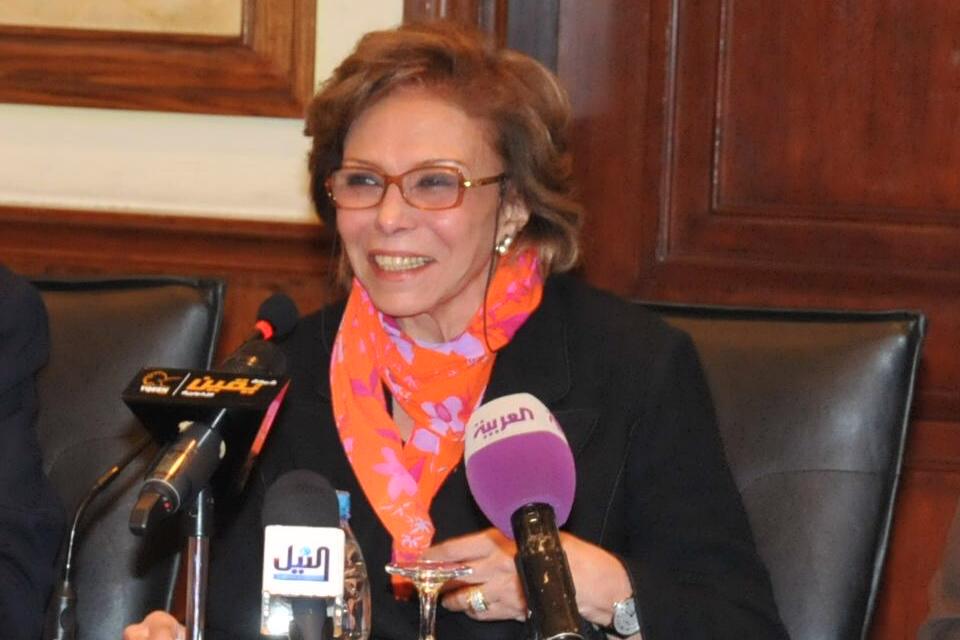WASHINGTON: Congress threatened on Wednesday to close the Palestine Liberation Organization’s office in Washington if it should defy the United States and Israel by pursuing a unilateral bid for the United Nations to accept Palestine as an independent state.
The vote in the Senate Appropriations Committee came as the United States and France pressured Palestinian President Mahmoud Abbas to abandon his bid for membership and return to negotiations with Israel. The diplomatic maneuvering unfolded in New York as the United Nations opened its annual meeting, with Abbas expected to submit his letter of application on Friday and the United States vowing a veto in the U.N. Security Council.
In Congress, frustrated lawmakers used the committee’s debate and approval of a $53 billion bill to fund the State Department and foreign operations next year to signal there would be consequences if the Palestinians press ahead.
"This is all falling apart," said Sen. Lindsey Graham, the top Republican on the foreign operations subcommittee and the sponsor of the amendment.
Graham’s amendment to the foreign aid bill would seek recommendations from the Secretary of State on appropriate action by Congress, especially possible closure of the PLO office in the United States, if the Palestinians should seek to become a state, either a member or a nonmember of the United Nations, rather than pursue direct negotiations with Israel.
Palestinians flew their flag over their diplomatic mission in Washington for the first time last January. Since the 1993 Oslo Accords, Republican and Democratic presidents have signed waivers allowing the mission to operate.
The committee approved the amendment by voice vote after several lawmakers expressed some misgivings about acting while the Obama administration was scrambling to avoid a showdown at the UN.
Democratic Sen. Dianne Feinstein said it was a "sensitive time" with negotiations under way in New York. Sen. Dick Durbin, another prominent Democrat, said lawmakers "are going to know a lot more in 48 hours."
The subcommittee chairman, Democratic Sen. Patrick Leahy, voiced the strongest concern about possibly silencing the Palestinian voice in the United States while Americans lecture Russia, Cuba, China and Egypt about cracking down on dissent.
"We lose a certain amount of credibility with the rest of the world," Leahy said.
Republican Sen. Mark Kirk, dismissed such reservations, however, arguing that Congress often uses legislation to spell out the consequences and the amendment was hardly fierce.
"It’s about as weak gruel as you can get," Kirk said to laughter.
The overall legislation also would prohibit some $400 million in economic aid to the Palestinians if they pursue statehood and a ban on aid to the government if the terrorist group Hamas has undue influence.
Reflecting the economic pressure, the bill is $6.2 billion less than President Barack Obama requested, with cuts and limits on funds for Iraq, Afghanistan and Pakistan.
American officials have criticized Islamabad for ties with the Haqqani network, a group of Muslim terrorists that Washington says are behind attacks in Afghanistan. Adm. Mike Mullen, chairman of the Joint Chiefs of Staff, said there is a "proxy connection" between Pakistani intelligence services and the Haqqanis, which are believed to have bases in the Pakistani tribal region of North Waziristan.
Washington officials have demanded that Pakistan crack down on Afghan militants hiding in the country. Lawmakers were incensed that al-Qaida leader Osama bin Laden lived in Pakistan undetected.
In the overall bill, the committee provided $1 billion for the Pakistan Counterinsurgency Capability Fund, $100 million below Obama’s request. It conditioned aid on Pakistan’s cooperation against the Haqqani network, Al-Qaeda and other terrorist organizations, with some waivers. The panel also took the unusual step of not specifying other assistance to Pakistan.
The bill would provide $5.2 billion for State Department and USAID operations and assistance in Iraq, $960 million less than Obama’s request.
Afghanistan would get $1.6 billion for assistance and $1.1 billion for State and USAID, with a cut of $74 million from the administration request.
The committee initially approved the bill on a 29-1 vote, with Sen. Ron Johnson, a Republican, the lone opponent. Later in the debate, Republican Sen. Jerry Moran said he wanted to change his vote to no, for a final tally of 28-2.

